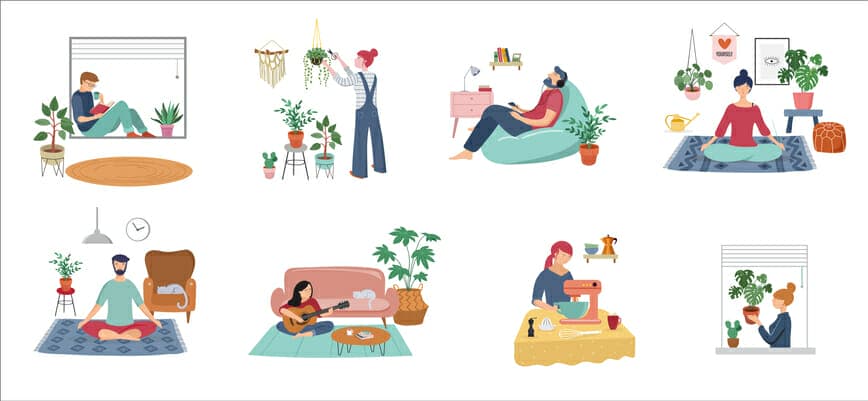
Do you wonder where you left your keys, wallet, or phone? Do you worry that you have misplaced your belongings? If there was a fire, would you be able to put your hands on your most important documents? Learn how to get organized and give yourself peace of mind.
When you are organized your things have homes. You know where your keys, wallet and phone are because you put them away where they belong. You know where your vital documents are because you have copied these documents. One copy is in the cloud, one copy in a fire safe box, and the originals are in the safe deposit box at the bank. You have peace of mind because you rest assured in case of an emergency you can put your hands on the things that are important to you.
7 Truths about How to Get Organized
1.There is No Right Way
There are as many different ways to get organized as there are people. There is no right way. If an organizational system is working for you, don’t change it! As they say, if it isn’t broken don’t fix it.
Be true to yourself and organize your things so that they support the way you want to live your life. Since there is no right way to organize the best way for you is one that supports you, the way you live your life, and gives you peace of mind.
2. Picture Perfect
Your home will probably never look like the homes in House Beautiful or Better Homes and Gardens because you live in your home. The pictures in those magazines are gorgeous but let’s face it those homes were cleaned up and staged before they were photographed for the magazine.
You can clean up your home and take a picture to remember what it looks like before life happens.
3. Can You Find It?
As long as you can find what you want when you want it your home is probably organized. You have peace of mind. It is not organized if you waste valuable time hunting for something. Then when you can’t find it, you go and buy a replacement. Of course, you know what happens next, you find what you were looking for and now you have two.
4. You Can Not Organize Once
Organizing is never a once and done exercise. Organizing is an ongoing process. As soon as you recognize the fact that being organized takes effort and that this is what will give you peace of mind, it becomes easier.
5. Practice Putting Things Away
When you get something out return the item to the place it belongs once you finish using it. This takes practice particularly if you are accustomed to taking things out and leaving them where you used them.

6. Close the Loop
No matter what the task, remind yourself to close the loop. You give yourself peace of mind by finishing the task. Leave no part of it left undone as a nagging reminder.
7. Maintenance
Every organizing system requires maintenance. Practice putting things away. Pay attention to the things you use and those you do not. If you aren’t using something, wearing certain clothes, or your children have aged out of some toys remove them from your home. Give yourself peace of mind by being aware of the ebb and flow of items in your home.
Tweak the organizing systems in your home as your requirements change. Since you now know that organizing is not a once and done exercise, think about what you can change to make it support you and your lifestyle better.
Think about asking a professional organizer to come in and help or join a support group. Read about the support group we offer here. You can also reach out to me for advice or find an organizer near you by searching the NAPO (The National Association of Productivity and Organizing Professionals) or ICD (The Institute for Challenging Disorganization) websites.
Diane N. Quintana is a Certified Professional Organizer®, Certified Professional Organizer in Chronic Disorganization®, Master Trainer and owner of DNQ Solutions, LLC and co-owner of Release●Repurpose●Reorganize, LLC based in Atlanta, Georgia. Diane teaches busy people how to become organized and provides them with strategies and solutions for maintaining order in their lives. She specializes in residential and home-office organizing and in working with people affected by ADD, Hoarding, and chronic disorganization.